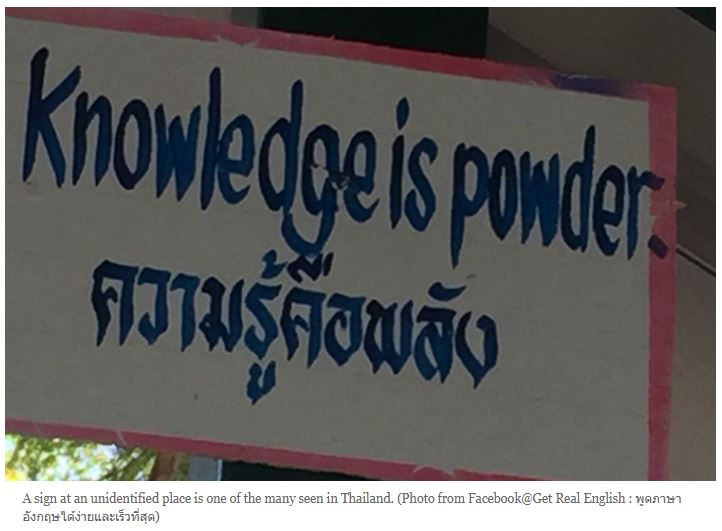Thai English skills dip for third year
Thailand’s English proficiency has fallen for the third year in a row, according to the annual English Proficiency Index conducted by the global education company EF Education First.
The report showed Thailand dropped to 74th out of 100 countries with a score of 47.62, which is considered “very low” proficiency.
In 2018, Thailand ranked 64th out of 88 countries studied in the report with a score of 48.54, while in 2017 it ranked 53rd out of 80 countries with a score of 49.7.
Thailand has the third lowest score in Southeast Asia, behind Indonesia and ahead of Myanmar and Cambodia, and ranked 17th out of 25 countries in Asia.
By region, central and northern Thailand had slightly higher English proficiency than the Northeast and the South. Bangkok has the highest level of English proficiency in Thailand followed by Nonthaburi province, Chiang Mai, Chonburi and Khon Kaen.
Men in Thailand scored slightly above women in the report, rating 48.68 and 47.59, respectively.
Singapore ranked fifth in the world, the highest in Asia and behind four wealthy Northern European countries with the Netherlands at the top. The Philippines came in second in Southeast Asia, followed by Malaysia, Vietnam, Indonesia, Thailand, Myanmar and Cambodia in last place.
The Philippines, Vietnam, Indonesia, Malaysia and Thailand all recorded a downward trend in their scores, while Cambodia and Myanmar saw improvement.
The report warns that countries such as Thailand and Cambodia with economies that rely heavily on tourism could suffer from lack of English proficiency. With English as the de facto international language, tourists may choose a competing destination where it is easier to get by with only English.
In Asia, women ranked higher than men in English proficiency with a score of 53.30, compared with mens’ score of 52.71. Worldwide there was less of a spread, but women still outscored men 53.23 to 53.03. The 26-30 age range scored the best in English proficiency both in Asia and worldwide.
The English Proficiency Index is based on an analysis of 2.3 million who took English tests administered by EF education first. The report found English proficiency to be improving worldwide, however, in Asia it has remained stagnant the past five years.


 Thailand
Thailand





